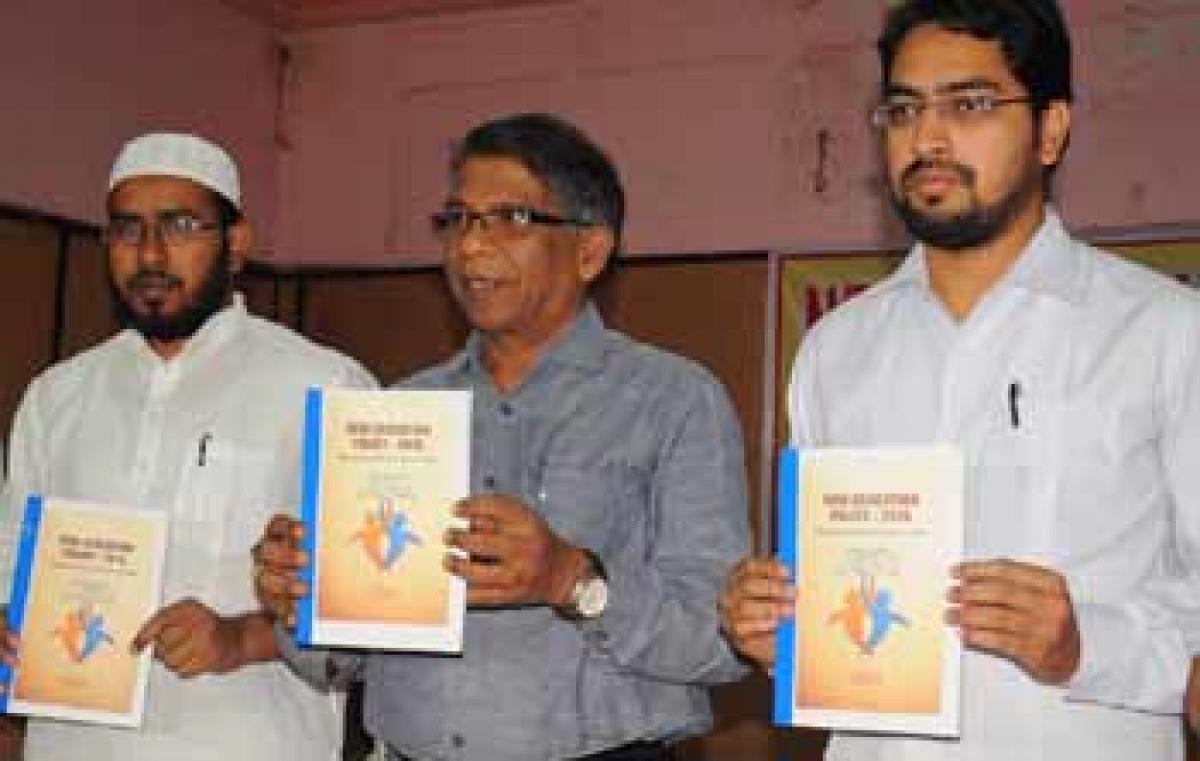Live
- PM stresses on thinking out-of-the-box in every sector
- Lokayukta cracks down, seizes illicit assets worth crores
- Farmers protest over delay in canal repair
- Amid continuing furore, five more maternal deaths occur in State
- Fostering a robust innovation
- New AP tourism policy hailed
- Village that gave land for Suvarna Vidhana Soudha, a picture of apathy
- What’s The Matter At Hand?
- Pollution levels continue to soar in Yamuna
- 540 touts held for duping passengers at IGI Airport
Just In

Acharya Nagarjuna University (ANU) professor Md Noor Basha has emphasised the need to find out the loopholes that are becoming hurdles for improving the present education system.
 Acharya Nagarjuna University (ANU) professor Md Noor Basha has emphasised the need to find out the loopholes that are becoming hurdles for improving the present education system. Speaking after unveiling the ‘Analytical Report & Recommendations on New Education Policy 2015’ by the Andhra Pradesh Zone of Students Islamic Organization of India at Press Club on Thursday, Noor Basha said that the pace of privatisation in education sector is posing a serious threat to the education system in India.
Acharya Nagarjuna University (ANU) professor Md Noor Basha has emphasised the need to find out the loopholes that are becoming hurdles for improving the present education system. Speaking after unveiling the ‘Analytical Report & Recommendations on New Education Policy 2015’ by the Andhra Pradesh Zone of Students Islamic Organization of India at Press Club on Thursday, Noor Basha said that the pace of privatisation in education sector is posing a serious threat to the education system in India.
If the situation continues unchecked, most of the government schools and colleges will disappear from the scene within next ten years. The education would then become a costly commodity that only the affluent can afford. Most of the children from downtrodden and marginalised sections would completely be deprived of primary education, he opined.
The ANU professor also said that the higher education sector was suffering from the lack of innovation, skill development and professionalism in academics. There was urgent need to instill professional skills among teachers to prepare the Indian higher education sector to face new challenges, he added.
Specifying the recommendations, he said that the new education policy should aim to provide free and compulsory education to all children up to the age of 18 years. It should also ensure that mother tongue should be the medium of education in primary school and physical activities in school are promoted for the health and wellbeing of pupils, he said.
Students Islamic Organization of India (SIO) AP Md Kareemuddin said that new education policy should aim on restructure and rebuild the Indian education system on the lines of Neighborhood School system to ensure equitable and quality education to all sections of children.
Deployment of faculty from departments of social sciences should be encouraged so that teacher’s education does not remain stand-alone even with in undergraduate colleges and university campuses. There must be a well-funded and extensive National Scholarship scheme targeting economically underprivileged students from socially disadvantaged groups, he added. SIO AP State secretary Abdul Rehman, organizing secretaries Sadique Hussain and Sk Kaleel were also present.

© 2024 Hyderabad Media House Limited/The Hans India. All rights reserved. Powered by hocalwire.com







